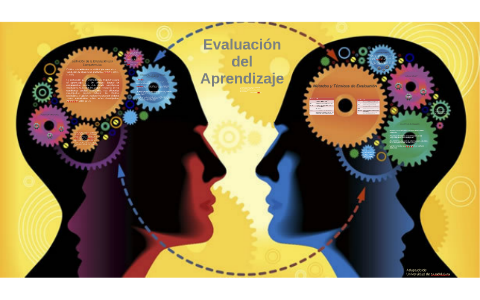I. Introducción
En una relación casi directa con el tema anterior, en esta ocasión, entramos al importantísimo tema de la evaluación del aprendizaje en eventos no presenciales.
En la medida en que la tecnología instruccional desarrolla nuevas modalidades para apoyar y promover el aprendizaje de los seres humanos, es clave conocer, comprender y aplicar un proceso sistemático y sistémico para evaluar, de forma exhaustiva, el aprendizaje.
Todo especialista en TdA necesita conocer la importancia de evaluar el impacto que las experiencias de aprendizaje tienen en el aprendiz, de manera tal que la metodología instruccional pueda ayudar, apoyar y promover el procesamiento de información adecuado para la adquisición y/o construcción de conocimiento.
El aprendizaje va más allá de la capacidad de leer, escribir o realizar operaciones aritméticas sencillas e incluye todo un conjunto de competencias necesarias para los distintos fines y coyunturas vitales de niños, jóvenes y adultos. Para mejorar la experiencia y los resultados del aprendizaje, es importante comprender qué, cuándo, dónde y cómo aprenden las personas. UNESCO – Evaluación para mejorar los resultados del aprendizaje (Enlace)
II. Evaluación del aprendizaje
A. Dos Reflexiones – Les comparto 2 vídeos interesantes sobre el concepto de evaluación del aprendizaje. Se los presento para provocar en ustedes una reflexión seria sobre el por qué de la evaluación en cualquier experiencia instruccional
-
-
-
- 1era Reflexión: ¿Y si lo que han evaluado sobre ti estuviera equivocado?
- 2da Reflexión: Let’s teach for mastery … not test scores
- 1era Reflexión: ¿Y si lo que han evaluado sobre ti estuviera equivocado?
-
-
B. Por qué y para qué de la evaluación – Un “doble puntillazo” para crear conciencia sobre el valor y significado de la evaluación del aprendizaje en entornos instrucciones.
-
-
-
- Evaluar para qué
- Evaluar para qué
-
-
C. Evaluación en EaD
-
-
-
- Vídeo 1: La evaluación de aprendizaje en la modalidad a distancia
- Vídeo 1: La evaluación de aprendizaje en la modalidad a distancia
-
-
-
-
-
- Video 2: Learner Assessment and Distance Education
- Video 2: Learner Assessment and Distance Education
-
-
III. La evaluación del y para el aprendizaje
IV. Evaluation of online learning readiness in the new distance learning normality
Cita del Artículo:
Reyes-Millán, M., Villareal-Rodríguez, M., Estela Murrieta-Flores, M., Bedolla-Cornejo, L., Vázquez-Villegas, P., Membrillo-Hernández, J. (2023). Evaluation of online learning readiness in the new distance learning normality. Heliyon, Volume 9, Issue 11, DOI: https://doi.org/10.1016/j.heliyon.2023.e22070
Resumen del artículo / AbsTract
he COVID-19 pandemic influenced teaching and learning in higher education. The transformation towards digital education challenged Faculty and students. This research examines the online learning readiness of students in a Higher Education Institution in Mexico. Specifically, we investigated how much prior digital skills, as well as having used the digital resources available by the university, influenced their academic achievement in distance learning settings. Seven dimensions of online learning readiness were selected to evaluate the student’s preparation for the online learning process. Questionnaires were applied before the start and at the end of digital courses. Follow-up tools were offered to support the student, and two groups were observed, users and non-users of the digital devices. It was observed that students who used the support developed significantly better critical thinking, problem-solving, and time organization skills than non-users. On the other hand, although the evaluations were not significantly different, the lowest averages were found in the non-user group. Our results indicate that prior training in the use of digital tools is essential for the success of online education; in the same way, a timely follow-up with technical and pedagogical assistance is necessary for developing competencies. Training more autonomous and independent students capable of distance learning in a global world demands experts in digital education urgently. Educational institutions must embrace new technologies and teaching methods to meet the ever-changing needs of students. This research is expected to play a crucial role in promoting constructive discussions and facilitating informed decisions concerning the creation of future educational models.
Enlace al artículo:
V. Referencias
Libros:
Fisher, D., Frey, N., Bustamante, V., Hattie, J. (2020). The Assessment Playbook for Distance and Blended Learning: Measuring Student Learning in Any Setting. Estados Unidos: SAGE Publications.
Handbook of Research on Determining the Reliability of Online Assessment and Distance Learning. (2020). Estados Unidos: IGI Global.
Simonson, M., Zvacek, S. (2024). Teaching and Learning at a Distance: Foundations of Distance Education 8th Edition. Estados Unidos: Information Age Publishing, Incorporated.
)